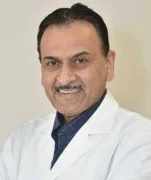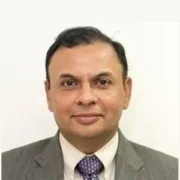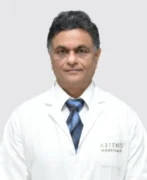Aortic valve surgery is a crucial intervention for individuals with aortic valve disease, addressing issues such as valve regurgitation or stenosis. This article provides an overview of the surgical procedure, its purposes, types, and what to expect during the preoperative, intraoperative, and postoperative phases.
What is Aortic Valve Replacement Surgery?
Aortic valve replacement surgery in India is a specialized treatment designed to rectify aortic valve disease, a condition that hampers the normal functioning of the aortic valve, which regulates blood flow from the heart’s left ventricle to the main artery (aorta). Whether due to congenital defects or acquired conditions, aortic valve disease can lead to complications such as heart failure and cardiac arrest.
Valve replacement surgeries in India are commonly performed cardiac surgery routinely undertaken at various Indian hospitals. Alongside aortic valve replacement, other prevalent valve replacement surgeries conducted in India include mitral valve replacement surgery, tricuspid valve replacement surgery, and pulmonary valve replacement surgery. In certain cases where two valves are not functioning optimally, both valves may need to be replaced, and this specific procedure is known as double valve replacement surgery. The medical expertise and advancements in India make these procedures accessible and well-established for patients requiring valve replacements.
Conditions Treated With Aortic Valve Replacement Surgery:
Cardiac surgeons perform Heart Valve Replacement Surgery to address two primary conditions:
- Aortic valve regurgitation (leaky valve)
Aortic valve regurgitation, also known as aortic regurgitation, is a form of heart valve disease where the valve situated between the lower left chamber of the heart and the body’s main artery fails to close tightly. Consequently, a portion of the blood ejected from the heart’s primary pumping chamber, known as the left ventricle, flows backward. This backward flow can impede the heart’s effective pumping of blood throughout the body, leading to symptoms such as fatigue and shortness of breath. If you are experiencing these symptoms, it may indicate the presence of aortic valve regurgitation, requiring medical attention for proper evaluation and management. - Aortic valve stenosis (narrowed valve opening)
Aortic valve stenosis, commonly referred to as aortic stenosis, occurs when the aortic valve within the heart narrows or becomes obstructed. This obstruction disrupts the regular flow of blood exiting the heart, leading to potential heart damage, significant health complications, and, in severe cases, a risk of mortality. Immediate attention and medical intervention are essential for the evaluation and management of aortic valve stenosis to prevent further complications.
While non-surgical treatments like medications can manage aortic valve disease, surgery becomes necessary when symptoms, heart damage, or heart failure are evident.
Types of Aortic Valve Surgery in India
There are two main approaches to aortic valve surgery in India :
- Aortic valve repair: This involves fixing damaged parts of the valve while preserving as much natural tissue as possible.
- Surgical aortic valve replacement (SAVR): This entails removing the damaged valve and replacing it with a new one.
- TAVR or TAVI: This is a minimally invasive procedure that inserts a new valve without removing the old Valve.
Cost of Aortic Valve Surgery in India
The estimated cost of valve replacement surgery will be approx. USD 6800-8000 (Depending upon valve implant and Hospital chosen).
The choice between these methods depends on factors such as diagnostic test results, age, heart structure, and the presence of other medical conditions.
Transcatheter aortic valve replacement (TAVR) or Transcatheter Aortic Valve Implantation (TAVI)
TAVR, or TAVI, is a medical intervention designed to address the narrowing and insufficient opening of the aortic valve. Positioned between the left lower chamber of the heart and the body’s primary artery, the aortic valve may experience a condition known as aortic valve stenosis characterized by its constriction. This valve issue impedes or decelerates the flow of blood from the heart to the rest of the body.
In a TAVR procedure, the expert Cardiologist replaces an aortic valve that is not working properly or is diseased with an aortic valve made from animal tissue. TAVR or TAVI is a minimally invasive procedure where a new valve is inserted without removing the old, requiring only a small cut in the skin. It does not require open-heart surgery.
TAVR or TAVI procedure is most suitable for people who are high-risk. As this procedure is a catheter-based procedure, it rules out the traditional risks of open heart surgery.
The cost of a TAVR or TAVI procedure ranges between $18000 and $26000, depending on the Valve company and hospital chosen.
Aortic Valve Surgery Procedure:
- Before Aortic Valve Surgery in India:
Patients may undergo various preoperative tests, including cardiac catheterization, chest X-ray, CT scan, echocardiogram, EKG, and lab tests. Providers give specific instructions regarding fasting, medication adjustments, and arrival times at the hospital. - During Aortic Valve Surgery in India:
The surgical team administers anesthesia, makes incisions to access the heart, connects the patient to a heart-lung machine, repairs or replaces the aortic valve, disconnects from the machine, and closes the incisions. The surgical approach may be traditional open-heart surgery or minimally invasive surgery, depending on individual factors. - After Aortic Valve Surgery in India:
Patients recover in the intensive care unit and then a regular hospital room, typically staying for five to seven days. Vital signs are monitored, and gradual movement is encouraged. Cardiac rehab may be recommended for ongoing recovery.
Risks and Benefits Of Aortic Valve Replacement Surgery:
The benefits of aortic valve surgery include a longer life expectancy, improved day-to-day well-being, and a better quality of life. However, like any surgery, there are risks, including abnormal heart rhythm, allergic reactions, bleeding, heart attack, heart failure, infection, and stroke. Individual risk levels vary based on factors like age, medical conditions, and the chosen surgical method.
Recovery after surgery in India:
Recovery generally takes four to eight weeks, with a shorter duration for minimally invasive surgery. Fatigue is normal during this period, and patients are advised to follow their provider’s guidance for exercise, including cardiac rehab. Safe resumption of activities such as driving, returning to work, and lifting heavy objects will be guided by the healthcare team. Depression is a common post-surgery experience and can be addressed with the help of healthcare providers or counsellors.
Conclusion:
Aortic valve surgery is a life-saving procedure that significantly improves the prognosis for individuals with aortic valve disease. Understanding the different aspects of the surgery, from preoperative preparation to postoperative recovery, is crucial for patients and their families. Always consult with healthcare providers to determine the most appropriate treatment plan based on individual circumstances.
Other Aortic Surgeries –
How HBG can help?
- Treatment options in India with over 200 empanelled hospitals.
- Free opinions and quotes from hospitals
- Selection of the best doctor to treat a specific disease
- Logistical support, such as transportation and accommodation
- Visa Assistance to the patients and their Attendants
- Travel Assistance to the patients and their Attendants
- Forex and other concierge services
- Arranging for add-on services like Holidays, Pilgrimage Tourism and shopping, etc.
- Full patient support service – 24/7 service
- Translators and Interpreters in major foreign Languages











